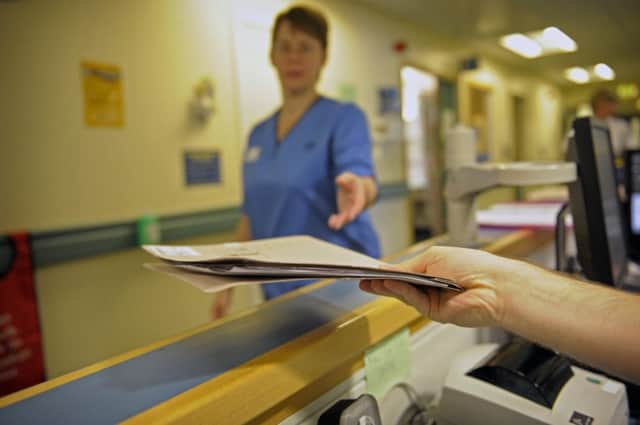Convicts to shadow NHS workers in hospitals


But many NHS Lothian domestic and catering staff and porters, who have been made aware of the scheme in recent days, are angry at the lack of consultation on the matter.
Other staff concerns focus on responsibility for offenders once on site and how the arrangement stands given the health board’s own policy of stringent Criminal Record Bureau (CRB) checks on staff – a point picked up on by Scottish Conservative chief whip John Lamont, who has stated that “necessary checks” must be carried out before allowing convicts to enter hospitals.
Advertisement
Hide AdAdvertisement
Hide AdPatients’ groups have also told how they would feel “quite anxious” about convicts being given access to wards and their “personal belongings”.
It is understood that the Western General Hospital is to be the pilot site for the scheme, the first of its kind in the Scottish health service. If successful, the initiative could then be rolled out across Scotland.
FOLLOW US
SCOTSMAN TABLET AND MOBILE APPS
One hospital worker, who asked not to be named, revealed how workers only heard of the plans after supervisors were called to a meeting at Saughton Prison in Edinburgh. He said: “It’s all been very hush-hush which only adds to the concern. None of the staff want this. Who will be responsible if one of these guys robs someone?
“It seems like we’ll be asked to complete our normal duties whilst also making sure that the guy they’ve partnered us with doesn’t rob the place.”
Union leaders have lent their backing to the plans after receiving assurances that those selected will be “comprehensively vetted” and “low-level” criminals.
Mick McGahey of Unison said: “We understand our members’ concerns but we have been assured that there will be strict regulations as to who can go on such placements, with a robust monitoring plan put in place. We are supportive of the scheme as we feel it is only right to offer people the chance to redeem themselves.”
Dr Jean Turner, executive director of the Scotland Patients Association, said: “Hospital is supposed to be a place of confidentiality and privacy and a plan such as this will no doubt make patients feel very vulnerable and anxious.”
A Scottish Prison Service spokeswoman said that “rigorous risk assessments” would be carried out both in terms of the work being undertaken and the individual on placement, while NHS Lothian director of human resources and organisational development Alan Boyter stated that public and patient safety will remain “our top priority” when considering suitable posts.
Meanwhile NHS Lothian employee director, Alex Joyce, acknowledged staff “reservations” about the scheme.